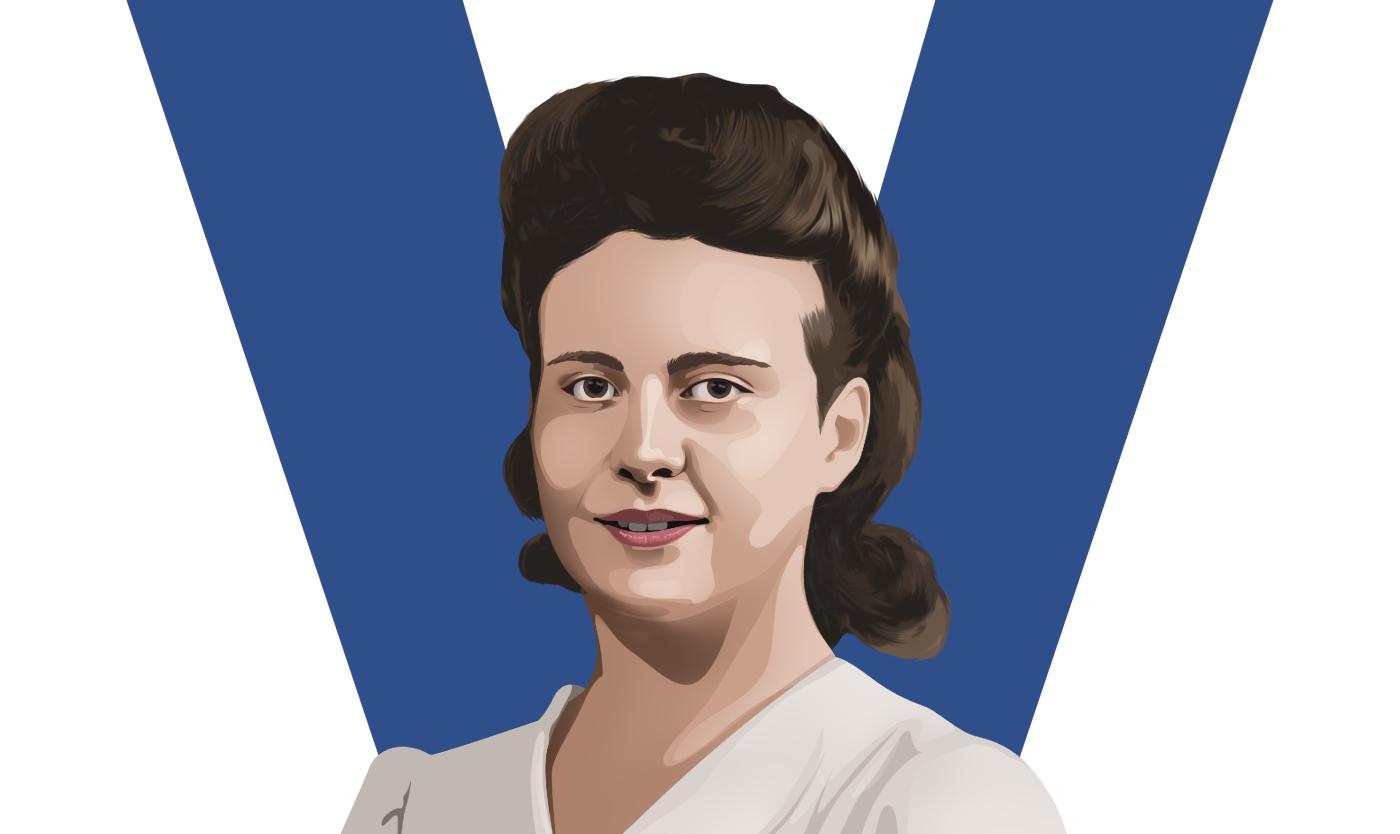
Reine Borms
1923-1999
As a student, Reine Borms joined the communist resistance, working as a courier, editor, and advocate for condemned fighters. She survived multiple Nazi camps, but the physical and psychological scars of her resistance remained with her for life.
Reine was born as Regina Borms on 12 September 1923 in Sint-Niklaas. Her father, a younger half-brother of Flemish nationalist August Borms, owned a tobacco shop in Sint-Niklaas. He later moved the family to Brussels, reportedly because he no longer wanted to be associated with the Flemish nationalism present in parts of his family. He lost his business and savings, plunging the family into poverty. From the age of fourteen, Reine gave private lessons to help support her parents financially.
During summer holidays in the 1930s with her uncle Karel in the Netherlands, she developed a deep aversion to Hitler and fascism. At the Lyceum in Ixelles, Reine excelled and was influenced and encouraged by her communist teachers Madeleine Jacquemotte and Denise Hons. In 1941, she began studying Germanic philology at the Université libre de Bruxelles (ULB), where she joined the clandestine group Étudiants socialistes unifiés (ESU).
After the university was shut down on 25 November 1941, Reine continued to follow underground courses and passed her first-year exams in 1942. She participated in writing and distributing resistance materials, including actions related to the execution of Jean Guilissen (1914–1942). In Liège, she continued her studies and served as a courier for weapons and messages for the Partisans Armés, in the Ourthe-Amblève cell (which included figures like Haroun Tazieff and Jean-Pierre Vivier, her fiancé). She also became involved with the Rassemblement estudiantin, where she served as secretary and was responsible for its resistance publication.
At the request of the Partisans, she visited her uncle August Borms three times at his home in Merksem, asking him to intervene on behalf of condemned resistance fighters such as Jean Guilissen, Jean Hansen, and Arnaud Fraiteur. August signed the letters but claimed his intervention would have no effect.
From 1943 onwards, she maintained regular contact with the national leadership of the ESU in Brussels. On 29 April 1944, she was arrested during an ESU action in Liège and brought before a German military court, which sentenced her to deportation to Germany on 20 August. Despite her family’s attempt to seek August Borms’ help again, she was deported to several concentration camps, including Ravensbrück, Sachsenhausen, and camps in Berlin. Because she refused to work for Siemens in support of the Nazi war effort, she was punished with eight days in the Strafblock (punishment block) at Ravensbrück—isolated, in minus 20°C, barely fed, without socks or shoes, and subjected to daily beatings, which left her physically and mentally scarred.
She was later forced on the death march to Sachsenhausen, following a bombing in Berlin that killed 90 prisoners. Reine survived by hiding during the camp’s evacuation and was liberated by Soviet troops. Upon returning to Belgium, her health delayed her studies, which she resumed in 1946. She graduated in 1947 and later married Dr. Jacques Duchaine, himself a former resistance member. The couple had one daughter. It wasn’t until ten years later that she was able to begin teaching, including at the Atheneum in Ixelles.
While her husband remained active in Belgium’s communist circles, Reine never returned to political activism. She died on 26 March 1999 in Anderlecht.
In 2024, her daughter published a book about her life and resistance work. In it, she testified to the lasting impact of the torture and camp experiences on her mother, and how such trauma inevitably affects the children of former resistance fighters.
Sources:
- Gotovitch, José. "BORMS Régina, Marie-Louise, dite Reine, épouse DUCHAINE." Le Maitron, 25 feb. 2020, dernière modification le 25 févr. 2020. https://maitron.fr/spip.php?article223537.
- Duchaine, Anne. Borms: Une famille entre collaboration et résistance. Racine, 2024.